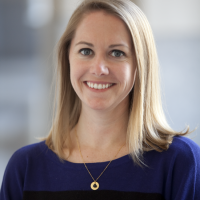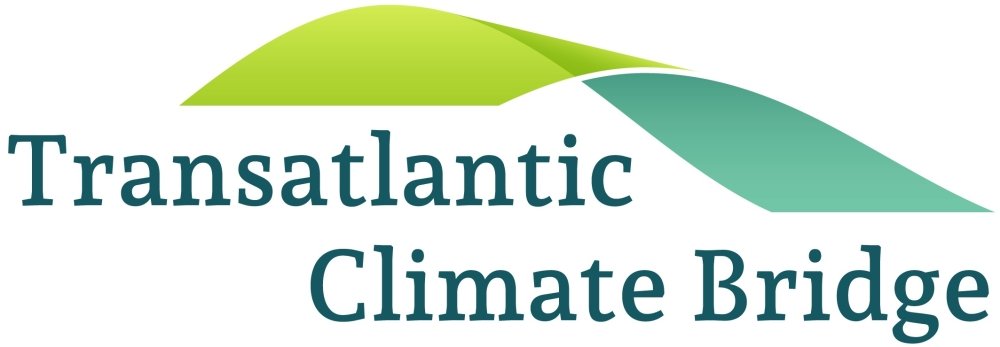Shared Risk, Shared Opportunity: Critical Minerals and the Transatlantic Climate Bridge
Submit a question
Supply chain considerations in today’s globalized economy have expanded beyond minimizing costs. As Duncan Wood, Vice President for Strategy and New Initiatives and Senior Advisor to the Mexico Institute at the Wilson Center, noted at a recent panel hosted by the Environmental Change & Security Program as part of the Transatlantic Climate Bridge conference, issues ranging from environmental, social, and corporate governance (ESG) to national security and geopolitics, have transformed critical mineral supply chains into something that is now “inherently political.”
The panel brought together experts from Latin America, North America, and Europe gathered to discuss the challenges, risks, and opportunities in responding to the projected demand for critical minerals from both sides of the Atlantic. At the center of the conversation was the question of which strategies might help nations navigate the powerful currents of politicization in the supply chain.
Western countries are “simply not present”
The dominance of China in the critical mineral supply chain globally was highlighted by panelists as a key challenge facing transatlantic bridge countries. In addition to potential national security and geopolitical risks posed for these nations, the lax environmental and social standards of Chinese operations is also a matter of concern. Chris Heron, the Communication and Public Affairs Director at Eurometaux, the European metals association, proposed that Western actors must considerably expand their presence in the global mining sector in order to avoid overdependence on China (and Russia) as they seek to generate clean energy.
Greater presence brings greater risks, however. In contrast to Europe’s risk-averse approach, the Chinese have been able to secure a dominant presence in the critical mineral supply chain in Latin America. Patricia Vásquez, a Global Fellow at the Wilson Center and a Research Associate at the Centre on Conflict, said China has secured a more favorable position because they “have been willing to take some of those political and economic risks.” While transatlantic cooperation can provide a new model of partnership to address ESG concerns, she stated that investors from the United States and Europe need to demonstrate a greater willingness to take risks.
Vásquez highlighted two key risks in Latin America. First, many Latin American countries have grappled with persistent periods of political and economic vulnerability throughout their history. A new Chilean constitution—which is currently being drafted and will be voted on by Chileans—had promised to transform the way strategic resources like lithium are developed. Two months ago, however, that proposal was rejected by the constitutional assembly after facing intense opposition from the mining industry.
The second risk is that development projects face increasing local opposition. Mark Myers, a principal at Myenergies and former director of the United States Geological Survey (USGS), noted that local opposition has stymied mining projects that already have completed their front-end work. This delay in approval incurs huge costs both to companies and governments.
Invest in data management and human capital
Vásquez observed that better access to information on the real and potential impacts of development projects will empower governments and local communities to make better decisions surrounding the risks that accompany these issues. Myers added that policymakers need to invest more in obtaining baseline environmental information, as well as social and economic perspectives. Obtaining such information will ensure that these factors are integrated early on in the planning process for projects.
Governments can also play a useful role. With sufficient funding and capacity, agencies like the USGS can help by conducting comprehensive assessments of a country’s resources to better inform project developments. New technologies such as remote sensing and autonomous vehicles, could bring about what Myers called a “whole paradigm shift” in how environments can be modeled and monitored—and ultimately, better understood.
Myers said that making such information open source and publicly available will increase transparency. He added that access to datasets also will help to attract new partnerships, while also providing a crucial element in building public trust.
Vasquez concurred with this assessment. She said that in many contexts, local opposition can be attributed to a lack of information. Greater disclosure can help mining companies overcome the industry’s “baggage of negative environmental and social footprints in the region”—and would go a long way in addressing local opposition concerns.
Wood noted that green energy mining projects are also facing an imminent “human capital crunch.” He said that the lack of graduates entering the mining, geology, and related Science, Technology, Engineering, and Math (STEM) fields is creating a huge deficit of technically qualified people to regulate the industry.
Myers agreed, adding that more resources should be invested into developing a technical workforce that can meet the challenges of the growing industry.
Opportunities in recycling and the private sector
Transatlantic partnerships should also explore ways to secure their critical minerals supply beyond the mining sector. Specifically, the European Union could offer its expertise in recycling to help reduce reliance on primary exports from China, said Heron. With the capacity to recycle 25 percent of the world’s metals and recover 20 different types of critical minerals from complex products, Europe could develop into a recycling hub for the region.
Heron said that large European companies like Aurubis are already investing in opening new recycling facilities in the United States, demonstrating an increasing interest in using recycling to build “strategic autonomy” in the sector. And Wood added that as huge amounts of minerals become available for recycling in the next few decades, governments need to tap on this window of opportunity to establish all the necessary infrastructure and protocols.
Vásquez cited private sector collaboration with Chinese companies as another avenue to improve the mining sector’s ESG standards, while Myers observed that this sort of partnership might circumvent the obstacles to government-level collaboration, including high geopolitical tensions and divergent national policies and goals between the Chinese state and Western democracies.
Vásquez pointed to successful private sector partnerships that are already a reality in Argentina, adding that joint ventures between Western and Chinese companies are the driving force behind improvements in the sector’s ESG standards. With the increased politicization of critical mineral supply chains, such partnerships might also provide the necessary impetus for progress on the political front.
Myers observed that as we find ourselves amidst an “energy paradigm shift,” all actors must keep an open mind about emerging approaches, strategies, and technologies.
But Lauren Risi, moderator of the panel and Program Director for the Wilson Center’s Environmental Change and Security Program, cautioned that minerals extraction remains a “dirty business” that can have an “outsized impact on marginalized communities around the world.” While new transatlantic partnerships offer the promise of a more sustainable and socially just model of operations in the mining sector, this can only be achieved when the experiences and concerns of marginalized communities are not understated or ignored.
Written by Yiran Ning, edited by Richard Byrne.
Continue the conversation on Twitter @NewSecurityBeat. Find related coverage of these issues on our blog, NewSecurityBeat.org.
Moderator

Panelists

Independent Energy Expert, Former Jennings Randolph Senior Fellow at the U.S. Institute of Peace

Hosted By

Environmental Change and Security Program
The Environmental Change and Security Program (ECSP) explores the connections between environmental change, health, and population dynamics and their links to conflict, human insecurity, and foreign policy. Read more


Brazil Institute
The Brazil Institute—the only country-specific policy institution focused on Brazil in Washington—aims to deepen understanding of Brazil’s complex landscape and strengthen relations between Brazilian and US institutions across all sectors. Read more


Canada Institute
The mission of the Wilson Center's Canada Institute is to raise the level of knowledge of Canada in the United States, particularly within the Washington, DC policy community. Research projects, initiatives, podcasts, and publications cover contemporary Canada, US-Canadian relations, North American political economy, and Canada's global role as it intersects with US national interests. Read more


Global Europe Program
The Global Europe Program is focused on Europe’s capabilities, and how it engages on critical global issues. We investigate European approaches to critical global issues. We examine Europe’s relations with Russia and Eurasia, China and the Indo-Pacific, the Middle East and Africa. Our initiatives include “Ukraine in Europe”—an examination of what it will take to make Ukraine’s European future a reality. But we also examine the role of NATO, the European Union and the OSCE, Europe’s energy security, transatlantic trade disputes, and challenges to democracy. The Global Europe Program’s staff, scholars-in-residence, and Global Fellows participate in seminars, policy study groups, and international conferences to provide analytical recommendations to policy makers and the media. Read more


Latin America Program
The Wilson Center’s prestigious Latin America Program provides non-partisan expertise to a broad community of decision makers in the United States and Latin America on critical policy issues facing the Hemisphere. The Program provides insightful and actionable research for policymakers, private sector leaders, journalists, and public intellectuals in the United States and Latin America. To bridge the gap between scholarship and policy action, it fosters new inquiry, sponsors high-level public and private meetings among multiple stakeholders, and explores policy options to improve outcomes for citizens throughout the Americas. Drawing on the Wilson Center’s strength as the nation’s key non-partisan policy forum, the Program serves as a trusted source of analysis and a vital point of contact between the worlds of scholarship and action. Read more


Mexico Institute
The Mexico Institute seeks to improve understanding, communication, and cooperation between Mexico and the United States by promoting original research, encouraging public discussion, and proposing policy options for enhancing the bilateral relationship. A binational Advisory Board, chaired by Luis Téllez and Earl Anthony Wayne, oversees the work of the Mexico Institute. Read more


Polar Institute
Since its inception in 2017, the Polar Institute has become a premier forum for discussion and policy analysis of Arctic and Antarctic issues, and is known in Washington, DC and elsewhere as the Arctic Public Square. The Institute holistically studies the central policy issues facing these regions—with an emphasis on Arctic governance, climate change, economic development, scientific research, security, and Indigenous communities—and communicates trusted analysis to policymakers and other stakeholders. Read more


